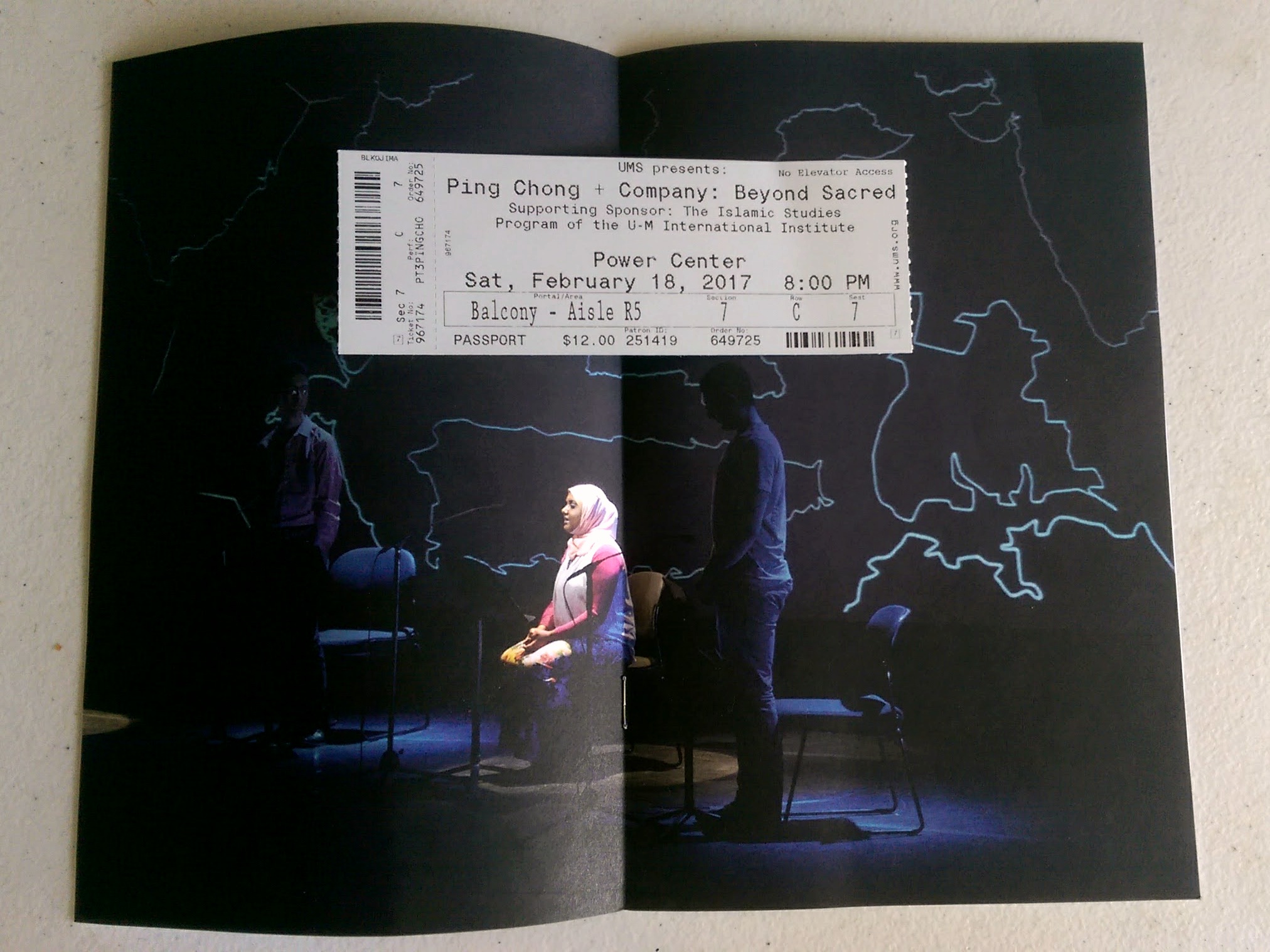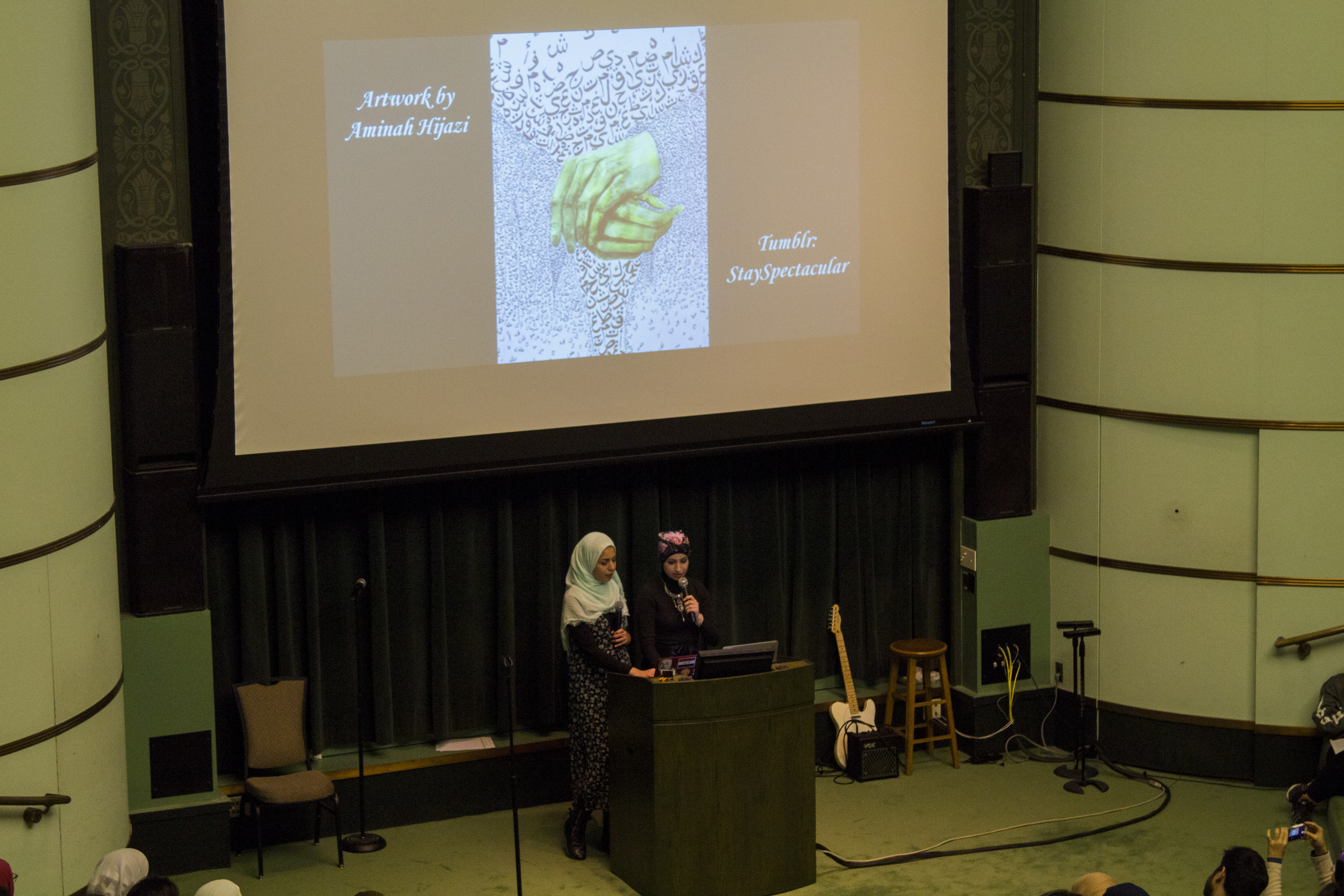Ping Chong + Company spend hours interviewing volunteers for their “undesirable elements” series. For Beyond Sacred, they chose 5 Muslim New Yorkers.
All five of these individuals came to the stage, sat down, and began reading autiobiographical scripts.
We heard from Tiffany Yasmin Abdelghani, a woman whose Muslim father stopped practicing and when prompted about the faith told her “I don’t do that anymore.” Lost for many years, she sought out Islam on her own and chose to convert and wear the hijab.
Ferdous Dehqan emigrated from Afghanistan to escape the destruction caused by the Taliban as it swept through the country. He expressed his frustration at people when they see him and assume he is a terrorist, when he hates the Taliban just as much, if not more the average American.
Kadin Herring brought with him the perspective of a young, African-American queer man. Not only does he have to contend with anti-immigrant and questions about his faith and allegiance to his country, but he also has to face the daily struggles of being a black man in the United States.
Amir Khafagy described his upbringing caught somewhere between Arab and Puerto Rican culture, as well as his experiences with class struggles.
Maya Syed told us about her path to becoming a human rights and gender equity advocate, from volunteering for the Peace Corps in the Dominican Republic to helping immigrants understand their rights in New York.
Beyond Sacred was different from any other play I had experienced before because it involved real people telling real stories–no actors and no fabricated scripts.
The overall message from the night was something along the lines of “minorities are regular people too.” All of the actors expressed frustration at constantly being asked questions about Islam or terrorism, and about all the looks they receive from people on a daily basis.
Furthermore, the actors explained how they felt they had to act as model Muslims as a way of overcompensating for the perceived violent nature of Muslims by much of the world. Lumping all Islamic cultures together is also ridiculous, they added, pointing out that Indonesia is nothing like Saudi Arabia, which is nothing like North Sudan.
After attending an event like this, I wondered what it would have been like hearing professional actors read the same scripts. I have to admit that I think professional actors would have done better, and made for a more moving performance. Instead, I left the event feeling like something was missing. A little over an hour was all we had to hear the stories of five complex people. How could that ever be enough time?
I wish I could’ve recorded the performance. Luckily, here’s a link to a brief audio snippet.






